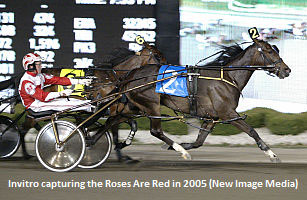
The horse racing world is full of pedigree theories, beliefs, old wives tales and opinions when it comes to making the most important decisions that breeders or buyers must make – What to breed and what to buy with respect to pedigree. The success or failure of an investment in a race-horse hinges on these crucial decisions and a wrong decision can be, at the least, very expensive.
One fact that the reader should be aware of is that the pedigree of the horse, once chosen and delivered in the form of a foal, cannot be changed. The breeder can change the environment within which the foal is raised using best practices, the buyer can retain the best trainer available and protect his investment in other ways. The end result, however, if the pedigree is incorrect, is that best practices in breeding and ownership cannot reverse a bad stallion choice, making that decision the most important one a breeder can make, and the buyer recognize.

A breeder has limited opportunity to make correct stallion decisions for each mare since after several failed matings the damage to the mare and to the breeders reputation is essentially done and the future success of both is compromised.
Another fact that is indisputable is that less than 5% of the foals produced in North America will pay for themselves over their lifetime based on the ability to earn $100,000 or more. Such a return on investment is clearly inadequate to sustain the interest in both breeding and buying standardbreds. It is little wonder that we see that the number of industry participants is shrinking.
If, as someone once said, the pedigree is only 18% of what makes a great horse is true, then also consider the fact that it is the first 18% and if it is incorrect the other 82% is a waste of everyone’s time, effort and money. The most important percentage in the purchase or breeding of a top performer is the first 18%, the correct pedigree.
There are many horses that have high speed but make little or no money. Similarly there are many horses that judging by their parents should be world champions but are complete failures on the track and in the breeding shed. An examination of the pedigree will allow you to avoid such horses and focus on the ones with true earnings potential. Pedigrees can be presented in several ways and indeed can also be interpreted in different ways. Most people who attend harness racing are probably familiar with wagering on the races and the variety of ways there are to handicap the horses and try to pick the winners. Evaluating pedigrees is much the same process. Numbers, statistics and patterns are what you look at and the relative importance you put on these in combination is a very individual thing.